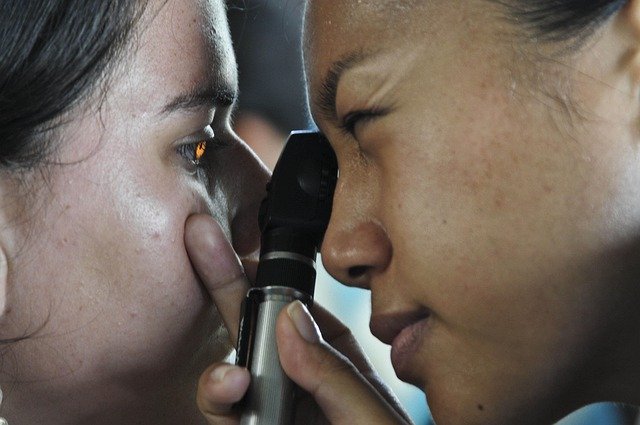When Do the Signs Point to a Bipolar Test? Understanding the Need for Screening
Wondering if your mood swings are more than just ups and downs? This guide helps you understand the key signs that may point toward bipolar tendencies and when it might be time to consider taking a test or speaking with a professional for further screening.

What are the common symptoms associated with bipolar disorder?
Bipolar disorder manifests through distinct episodes of mania or hypomania and depression. During manic episodes, individuals may experience an unusually elevated mood, increased energy, reduced need for sleep, and impulsive behavior. Conversely, depressive episodes are characterized by persistent sadness, loss of interest in activities, fatigue, and feelings of worthlessness. The severity and duration of these episodes can vary, but the cyclical nature of mood changes is a hallmark of bipolar disorder.
Other symptoms may include difficulty concentrating, changes in appetite or weight, and in severe cases, psychotic symptoms such as hallucinations or delusions. It’s important to note that everyone’s experience with bipolar disorder is unique, and symptoms can manifest differently from person to person.
How can mood patterns indicate the need for a bipolar test?
Recognizing patterns in mood fluctuations is key to identifying potential bipolar disorder. If you or someone you know experiences extreme mood swings that seem out of proportion to life events, it may be time to consider a bipolar test. Pay attention to periods of unusually high energy and productivity followed by episodes of deep depression or lethargy. These cycles may occur over weeks or months and can significantly impact daily functioning.
Additionally, rapid cycling between high and low moods within a short period, sometimes even within days, can be a red flag. If these mood shifts interfere with work, relationships, or overall quality of life, it’s advisable to seek professional evaluation.
What are online bipolar disorder screening tests?
Online bipolar disorder screening tests are self-assessment tools designed to help individuals identify potential symptoms of bipolar disorder. These tests typically consist of a series of questions about mood, behavior, and thought patterns. While not diagnostic, they can serve as a valuable first step in recognizing the need for professional evaluation.
Common online screening tools include the Mood Disorder Questionnaire (MDQ) and the Bipolar Spectrum Diagnostic Scale (BSDS). These tests assess the presence and frequency of manic or hypomanic symptoms, as well as depressive episodes. It’s crucial to remember that online tests are not substitutes for professional diagnosis but can provide insight into whether further assessment is warranted.
What information is available on professional bipolar assessments?
Professional bipolar assessments are comprehensive evaluations conducted by mental health specialists, typically psychiatrists or clinical psychologists. These assessments involve in-depth interviews, medical history reviews, and may include psychological testing. The goal is to accurately diagnose bipolar disorder and differentiate it from other mental health conditions with similar symptoms.
During a professional assessment, the clinician will explore the individual’s mood patterns, energy levels, sleep habits, and any family history of mental illness. They may use standardized diagnostic tools such as the Structured Clinical Interview for DSM-5 (SCID-5) or the Young Mania Rating Scale (YMRS) to evaluate symptoms systematically. Additionally, physical exams and laboratory tests may be ordered to rule out other medical conditions that could mimic bipolar symptoms.
How can online tests help in recognizing bipolar disorder symptoms?
Online bipolar disorder screening tests can play a valuable role in raising awareness and prompting individuals to seek professional help. These tests can help people identify patterns in their mood and behavior that they might not have recognized on their own. By answering questions about specific symptoms and experiences, individuals can gain insights into whether their mood fluctuations align with bipolar disorder criteria.
Furthermore, online tests can provide a non-threatening way for people to explore their mental health concerns before taking the step of consulting a healthcare provider. The results of these screenings can serve as a starting point for discussions with mental health professionals, helping to guide the conversation and potentially expedite the diagnostic process.
What are the next steps after identifying potential bipolar symptoms?
If online screening tests or personal observations suggest the possibility of bipolar disorder, the next crucial step is to consult a mental health professional. This could be a primary care physician, psychiatrist, or psychologist who can conduct a thorough evaluation. It’s important to approach this process with an open mind and provide honest, detailed information about symptoms and experiences.
During the initial consultation, the healthcare provider may recommend further psychological testing, mood charting, or referral to a specialist. They will also discuss treatment options, which may include medication, psychotherapy, or a combination of both. Remember that early intervention can significantly improve outcomes for individuals with bipolar disorder, making it easier to manage symptoms and maintain a better quality of life.
Bipolar disorder is a complex condition that requires professional diagnosis and treatment. While online screening tools can be helpful in recognizing potential symptoms, they should not be used as a substitute for medical advice. If you or someone you know is experiencing symptoms that may indicate bipolar disorder, it’s crucial to seek help from a qualified mental health professional. With proper diagnosis and treatment, many individuals with bipolar disorder lead fulfilling and productive lives.
This article is for informational purposes only and should not be considered medical advice. Please consult a qualified healthcare professional for personalized guidance and treatment.




